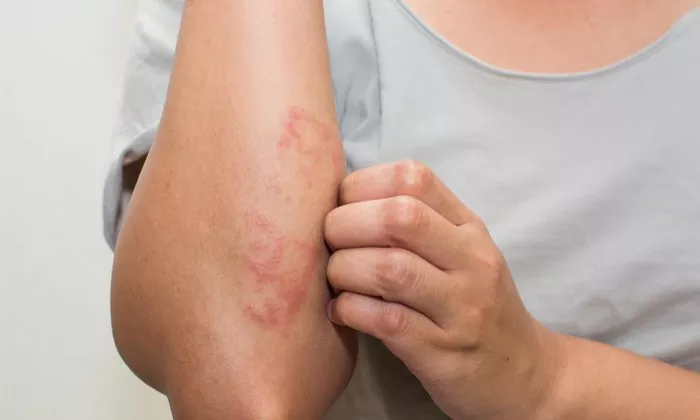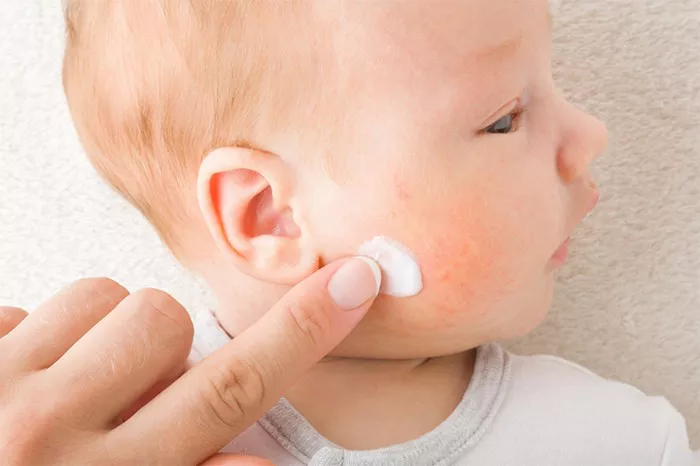Eczema, also known as atopic dermatitis, is a skin condition that causes itching, dryness, and inflammation. One of the most frustrating symptoms of eczema is the urge to scratch, which can make the condition worse. Scratching can lead to skin damage, infections, and further irritation, making it essential to find ways to stop this vicious cycle. This article will explore several methods and strategies to help prevent eczema scratching, improve skin health, and reduce discomfort.
Understand Why Eczema Causes Itching
Before diving into ways to stop eczema scratching, it’s important to understand why it causes such an intense urge to scratch. Eczema results in inflamed, irritated skin. This inflammation can trigger the release of chemicals, such as histamines, which stimulate nerve endings and create the sensation of itching. The more you scratch, the more damage you do to the skin barrier, which in turn causes more itching. It becomes a cycle that’s difficult to break. By understanding this, you can be more mindful of how scratching worsens the problem and focus on methods to break the cycle.
Moisturize Regularly
One of the simplest and most effective ways to prevent itching from eczema is to keep your skin well-moisturized. Dry skin tends to exacerbate itching, so it’s essential to apply a thick, fragrance-free moisturizer frequently throughout the day. After bathing or washing your hands, apply moisturizer immediately to lock in moisture while your skin is still damp.
Look for products that are specifically formulated for eczema-prone skin, such as those containing ceramides, glycerin, or petrolatum. These ingredients help to repair the skin’s barrier and keep it hydrated. Consider using ointments or creams rather than lotions, as they tend to be thicker and provide longer-lasting moisture.
Avoid Scratching Triggers
Certain triggers can make eczema itching worse. These triggers vary from person to person, but common ones include:
Heat and sweating: Hot weather or exercise can lead to sweat, which can irritate the skin and trigger itching. Dress in loose, breathable clothing to avoid sweating and overheating.
Harsh soaps or detergents: Some soaps, shampoos, or laundry detergents contain fragrances or chemicals that can irritate eczema-prone skin. Choose mild, fragrance-free products to minimize irritation.
Stress: Emotional stress is a known trigger for eczema flare-ups. Practicing stress-reducing techniques, such as meditation or deep breathing exercises, can help keep flare-ups under control.
By identifying your specific triggers and avoiding them when possible, you can reduce the urge to scratch.
Apply Cold Compresses
If you’re dealing with intense itching, applying a cold compress can provide quick relief. Cold helps to numb the skin, reducing the sensation of itching. You can use a clean cloth or towel soaked in cold water, or even an ice pack wrapped in a thin cloth. Apply it to the affected area for about 10 to 15 minutes. Be sure not to apply ice directly to the skin to prevent frostbite. Repeat this as needed to help manage itching.
Use Anti-Itch Creams and Medications
Several topical treatments can help reduce itching and inflammation associated with eczema. Over-the-counter creams containing hydrocortisone are often effective at reducing the itch. However, it’s important not to use hydrocortisone for extended periods without consulting a healthcare provider, as it can thin the skin with prolonged use.
For more severe cases of eczema, your doctor may prescribe stronger medications, such as topical calcineurin inhibitors (e.g., tacrolimus or pimecrolimus), which help reduce inflammation and itching without the side effects of steroids. Another option may be topical steroid creams, which are stronger and need to be used under medical supervision to avoid potential side effects.
In some cases, oral antihistamines can help manage itching, particularly if allergies are a trigger for your eczema flare-ups. These medications work by blocking histamines, which are chemicals that play a role in allergic reactions and itching.
Take Lukewarm Baths
While hot water can irritate eczema and make itching worse, lukewarm baths can provide relief. Bathing helps hydrate the skin and soothes irritation. To make the bath even more effective, consider adding colloidal oatmeal or bath oils, which can calm the skin and reduce itching.
After your bath, avoid rubbing your skin with a towel. Instead, gently pat your skin dry and apply a moisturizer immediately to lock in moisture.
Wear Soft, Loose Clothing
Certain fabrics can aggravate eczema and contribute to itching. Wool and synthetic fabrics, for example, may cause irritation. Instead, opt for soft, breathable fabrics like cotton, which allow your skin to breathe and reduce the risk of irritation.
Wearing loose-fitting clothing is also important. Tight clothes can rub against your skin, making the itch worse. Choose loose, comfortable clothing that won’t put pressure on the affected areas.
Practice Proper Skin Care
Good skin care habits can play a crucial role in preventing eczema flare-ups and reducing the urge to scratch. Besides moisturizing regularly, be sure to avoid hot showers, as hot water can strip the skin of its natural oils. When bathing, use a gentle, fragrance-free cleanser designed for sensitive skin.
After bathing, gently pat your skin dry with a towel rather than rubbing it, which can irritate the skin. Once your skin is dry, immediately apply a thick moisturizer to help seal in moisture and create a barrier to protect the skin.
Try Behavioral Strategies
Sometimes, the urge to scratch becomes a habit or an unconscious behavior. In these cases, behavioral strategies can help break the cycle of scratching. Cognitive behavioral therapy (CBT) is one method that has been shown to be effective in reducing chronic itching and scratching. This type of therapy can help you become more aware of your scratching habits and teach you alternative ways to manage the urge to scratch.
Another technique is to keep your hands busy with activities that require fine motor skills, such as knitting, drawing, or squeezing a stress ball. This can help distract you from the urge to scratch and reduce the likelihood of skin damage.
Consider Lifestyle Modifications
Making certain lifestyle changes can also help manage eczema symptoms and prevent scratching. Regular exercise is essential for overall health and can help manage stress, which is a common trigger for eczema flare-ups. However, be sure to shower and moisturize immediately after exercise to prevent sweat from irritating the skin.
If you’re prone to eczema, it’s essential to stay hydrated. Drinking plenty of water throughout the day helps keep your skin hydrated from the inside, which can prevent dryness and irritation. Additionally, a diet rich in omega-3 fatty acids, found in foods like salmon, flaxseeds, and walnuts, may help reduce inflammation and improve skin health.
Consider Medical Treatments
If home remedies and lifestyle changes don’t provide sufficient relief, medical treatments may be necessary to stop eczema scratching. In some cases, dermatologists may recommend phototherapy, which uses ultraviolet light to treat eczema and reduce inflammation. This treatment is typically used for more severe cases that don’t respond to topical treatments.
For chronic or severe eczema, systemic treatments such as oral corticosteroids or immunosuppressive medications may be prescribed. These medications help reduce inflammation throughout the body and can be effective in managing intense eczema flare-ups.
Manage Stress and Sleep
Stress is a significant factor that can worsen eczema and trigger the urge to scratch. Finding effective ways to manage stress is essential for preventing eczema flare-ups and stopping the cycle of itching. Techniques such as meditation, yoga, deep breathing exercises, or mindfulness can help reduce stress levels and promote relaxation.
Getting enough sleep is also crucial for eczema management. Lack of sleep can increase stress levels, which in turn may worsen eczema symptoms. Try to establish a regular sleep routine and create a calming bedtime environment to help you get sufficient rest.
Conclusion
Stopping eczema scratching requires a multifaceted approach that involves moisturizing, avoiding triggers, using appropriate treatments, and managing stress. By implementing the strategies outlined above, you can reduce the urge to scratch, minimize eczema flare-ups, and improve the health of your skin. If you’re struggling with severe or persistent eczema, it’s essential to consult a healthcare provider or dermatologist for personalized advice and treatment options. With the right care and lifestyle changes, you can effectively manage eczema and break the cycle of itching and scratching.
Related topics:

























